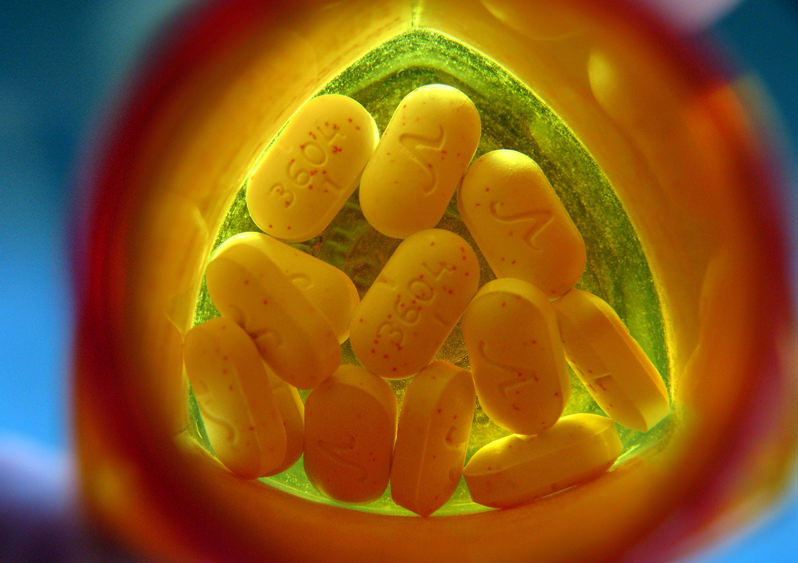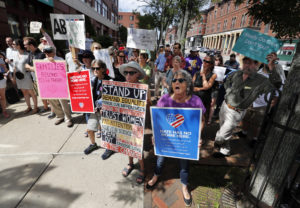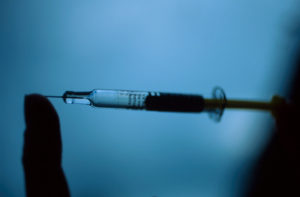How We Can Do Something About the Opioid-Overdose Epidemic
To prevent future tragedies, the Drug Policy Alliance has created a comprehensive plan that involves treatment and strategies for reducing criminalization. frankieleon / CC BY 2.0
frankieleon / CC BY 2.0
By Amanda Bent / AlterNet
On August 31, 2016 advocates around the world commemorated International Overdose Awareness Day. We do so each year, first and foremost, to honor the memories of those tragically lost to overdose, but also to build solidarity around preventing future tragedies.
I spent part of my day strategically engaging with folks passing through a busy local intersection in my city. By holding up signs and passing out informational flyers, we drew attention to the alarming fact that overdose is the leading cause of accidental death locally and nationally, surpassing even car accidents. The brief but frank conversations I had with community members all centered on a very pressing and pointed question—if we recognize opioid-related overdose, in particular, as a growing public health problem, what can we do to help? In the wake of this month’s election, officials gearing up for their respective terms of service are undoubtedly wondering the same thing.
Of course, just like drug use in general, overdose is a complex, multifaceted issue. While most overdose deaths involve opioids, the majority of people who use opioids or any other substances do so without ever developing related problems. Problems that do arise are influenced by a multiplicity of risk and protective factors at play in an individual’s life.
No solutions will be universally applicable or absolute, but harm reduction principles and public health priorities are promising building blocks for humane and effective policies. Responses involving shame, fear and punishment tend to do more harm than good, even when they are posited by well-intentioned people or supported by anecdote.
In principle and in practice, our solutions must be nuanced and empowering, rather than further stigmatizing, to those who are vulnerable to opioid-related harms. Solutions must recognize whole people in the fullness of their humanity and account for all the circumstances where people experience risk of dependence, overdose and other negative consequences that may be associated with opioid use.
DPA’s recently released Opioid Dependence and Overdose Response Plan: A Public Health and Safety Approach does just that. The plan outlines a holistic approach involving effective treatment, harm reduction, evidence-based prevention, and strategies to reduce the role of criminalization when it comes to managing opioid-related issues and harms.
DPA’s plan seeks to build on the momentum of life-saving policy reforms such as the expansion of naloxone availability in 48 states and the passage of Good Samaritan laws in 37 states. We recognize the need to improve and expand those policies while also broadening the scope of effective, evidence-based treatment access and harm reduction services including supervised consumption services.
By putting forth reality-based drug education and other holistic supports, we can avoid creating more problems than are caused by either drug use itself or through punitive interventions. Since punishing drug use does nothing to interrupt the supply and demand of the drug market, we can instead focus our resources more appropriately on diversion options and other alternatives rather than using the criminal justice system as a de facto and faulty provider of social services.
This time next year, another International Overdose Awareness Day will have come to pass and it would be unrealistic for me to predict that we will not have more tragedies to grieve. But in the meantime, every day presents opportunities for us to do right by those we have lost and by future generations whose well-being depends on our present sense of urgency.
DPA’s plan should serve as a guide to our elected officials and other policymakers and to the communities who are rightly demanding long-term, comprehensive solutions that promote public health and ensure public safety.
Your support matters…Independent journalism is under threat and overshadowed by heavily funded mainstream media.
You can help level the playing field. Become a member.
Your tax-deductible contribution keeps us digging beneath the headlines to give you thought-provoking, investigative reporting and analysis that unearths what's really happening- without compromise.
Give today to support our courageous, independent journalists.






You need to be a supporter to comment.
There are currently no responses to this article.
Be the first to respond.